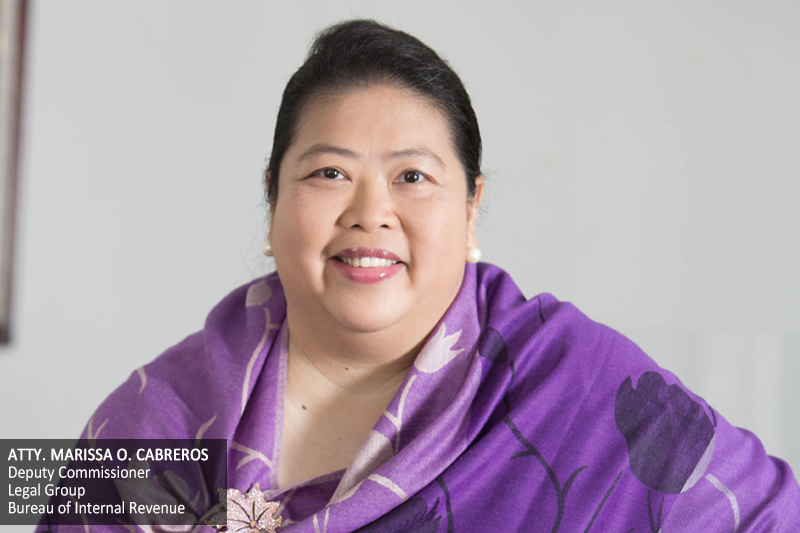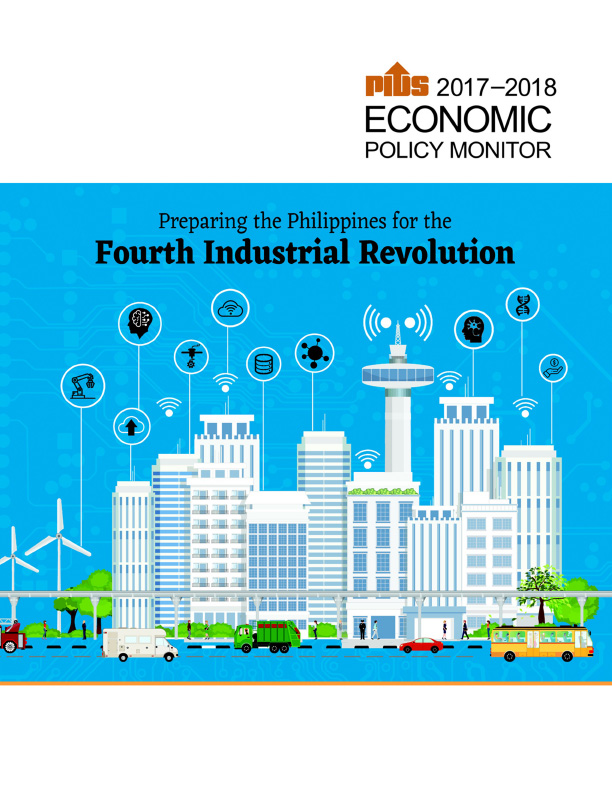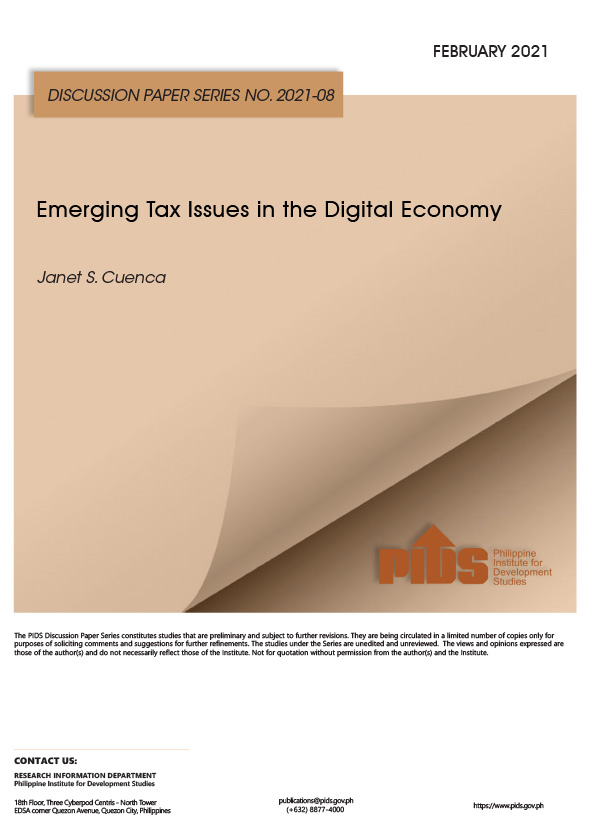
The government needs to adopt a well-thought-out strategy and policy package in taxing the digital economy.
Atty. Marissa O. Cabreros, deputy commissioner of the Bureau of Internal Revenue’s (BIR) Legal Group, emphasized this at a recent webinar organized by state think tank Philippine Institute for Development Studies (PIDS).
Titled “Taxation of the Digital Economy and Costs and Benefits of Customs Duties Moratorium on Electronic Transmissions”, the virtual event featured two PIDS studies, namely, “Emerging Tax Issues in the Digital Economy” and “Costs and Benefits of New Disciplines on Electronic Commerce”.
Cabreros, a discussant in the webinar, noted that the growth and expansion of the digital economy have rapidly accelerated because of the current global health issue. She said the virtual solution of doing business has offered a safer alternative against the COVID-19 pandemic.
However, to effectively tax the digital economy, an appropriate regulatory and legal framework must be in place, she said.
Cabreros explained that policies should not just be copied from other countries but should be studied to ensure they are suited to the Philippine setting.
She also pointed out that Congress plays a significant role in providing government offices and regulators with enabling laws to ease the presence of constraints or the absence of controls, as well as in creating and defining parameters to ensure the country's smooth transition to a digital economy.
Meanwhile, Cabreros shared that BIR recognizes the challenges that come with this paradigm shift.
“The digital economy and the digitalization of the economy gave birth to new types of business entities and new business models that challenge the application of the current provisions of the Tax Code, which has been anchored and designed under a ‘brick-and-mortar’ or traditional way of doing business and reporting,” she said.
Cabreros admitted that, in reality, not all existing rules under the brick-and-mortar mode are applicable with the digitalization of certain facets and phases of business transactions. Hence, she urged the government to update related taxation policies and regulations to address the digital economy's demands.
Moreover, she mentioned that government agencies such as the BIR, Bureau of Customs, Department of Trade and Industry, National Telecommunications Commission, and Department of Information and Communications Technology would take on significant roles in the growth of the digital economy. Thus, Cabreros suggested that the mandates and responsibilities of these agencies be revisited to prepare them for the country’s digital transformation. ###
You may watch the webinar at https://www.facebook.com/PIDS.PH/videos/496246064829808. For more videos of PIDS events, go to https://www.pids.gov.ph/videos.
Atty. Marissa O. Cabreros, deputy commissioner of the Bureau of Internal Revenue’s (BIR) Legal Group, emphasized this at a recent webinar organized by state think tank Philippine Institute for Development Studies (PIDS).
Titled “Taxation of the Digital Economy and Costs and Benefits of Customs Duties Moratorium on Electronic Transmissions”, the virtual event featured two PIDS studies, namely, “Emerging Tax Issues in the Digital Economy” and “Costs and Benefits of New Disciplines on Electronic Commerce”.
Cabreros, a discussant in the webinar, noted that the growth and expansion of the digital economy have rapidly accelerated because of the current global health issue. She said the virtual solution of doing business has offered a safer alternative against the COVID-19 pandemic.
However, to effectively tax the digital economy, an appropriate regulatory and legal framework must be in place, she said.
Cabreros explained that policies should not just be copied from other countries but should be studied to ensure they are suited to the Philippine setting.
She also pointed out that Congress plays a significant role in providing government offices and regulators with enabling laws to ease the presence of constraints or the absence of controls, as well as in creating and defining parameters to ensure the country's smooth transition to a digital economy.
Meanwhile, Cabreros shared that BIR recognizes the challenges that come with this paradigm shift.
“The digital economy and the digitalization of the economy gave birth to new types of business entities and new business models that challenge the application of the current provisions of the Tax Code, which has been anchored and designed under a ‘brick-and-mortar’ or traditional way of doing business and reporting,” she said.
Cabreros admitted that, in reality, not all existing rules under the brick-and-mortar mode are applicable with the digitalization of certain facets and phases of business transactions. Hence, she urged the government to update related taxation policies and regulations to address the digital economy's demands.
Moreover, she mentioned that government agencies such as the BIR, Bureau of Customs, Department of Trade and Industry, National Telecommunications Commission, and Department of Information and Communications Technology would take on significant roles in the growth of the digital economy. Thus, Cabreros suggested that the mandates and responsibilities of these agencies be revisited to prepare them for the country’s digital transformation. ###
You may watch the webinar at https://www.facebook.com/PIDS.PH/videos/496246064829808. For more videos of PIDS events, go to https://www.pids.gov.ph/videos.












